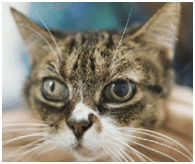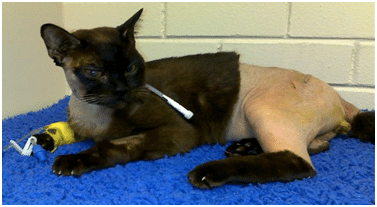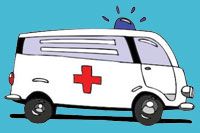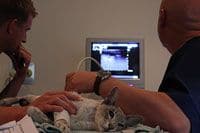Pets With Head Traumas
What you can see doesn’t accurately reflect the damage.
Head trauma can occur alone (e.g. running into a door) or with trauma to other parts of the body (e.g. car accident, animal attack). In many cases, the amount of damage you see externally does not accurately reflect the amount of internal damage that has occurred.
Symptoms
- Bleeding from the mouth, ears, eyes, gums
- Abnormal pupil size or different sized pupils in each eye
- Wounds/grazes on the face
- Inability to close mouth, tongue poking out of mouth
- Excessive salivation and/or gurgling sounds when breathing
- Difficulty breathing
- Strange behaviour
- Lack of co-ordination (wobbly when walking or even paralysis)
- Unconsciousness
- Seizures
Head trauma can be a life threatening condition; seek veterinary attention immediately, even if your pet appears normal as the brain will swell with time.
Note the different sized pupils in this cat
What to expect at the vet
When you arrive at the clinic, your pet will be taken straight to the treatment area where a vet will examine it immediately. Once the vet has determined the extent of the injuries, they will discuss what treatments may be required.
Treatments for head trauma can include
Pain relief.
Intravenous fluid therapy (IV drip) – this is needed if your pet is in shock.
Oxygen – this is given to minimise the risk of brain damage.
Medications as indicated to control brain swelling, seizures, blood pressure.
Nutritional support – your pet might need to be fed via a tube temporarily if they have a fractured jaw and cannot eat normally.
Severe cases may require mechanical ventilation (a machine that breathes for them).
‘Henry’ sustained multiple jaw fractures when he was hit by a car. He was fed via a tube that entered his oesophagus directly from his neck while his fractures healed. After some time in hospital, his owners were able to take him home to continue tube feeding.
The injuries sustained from head trauma can range from minimal to very severe; while the treatments required and costs involved vary accordingly. Some cases require nothing more than pain relief, whereas others will need intensive care and extended periods of hospitalisation.
The prognosis for full recovery is influenced by the severity of the head trauma (including whether other parts of the body are affected) and how quickly your pet receives the required veterinary attention and treatment.





